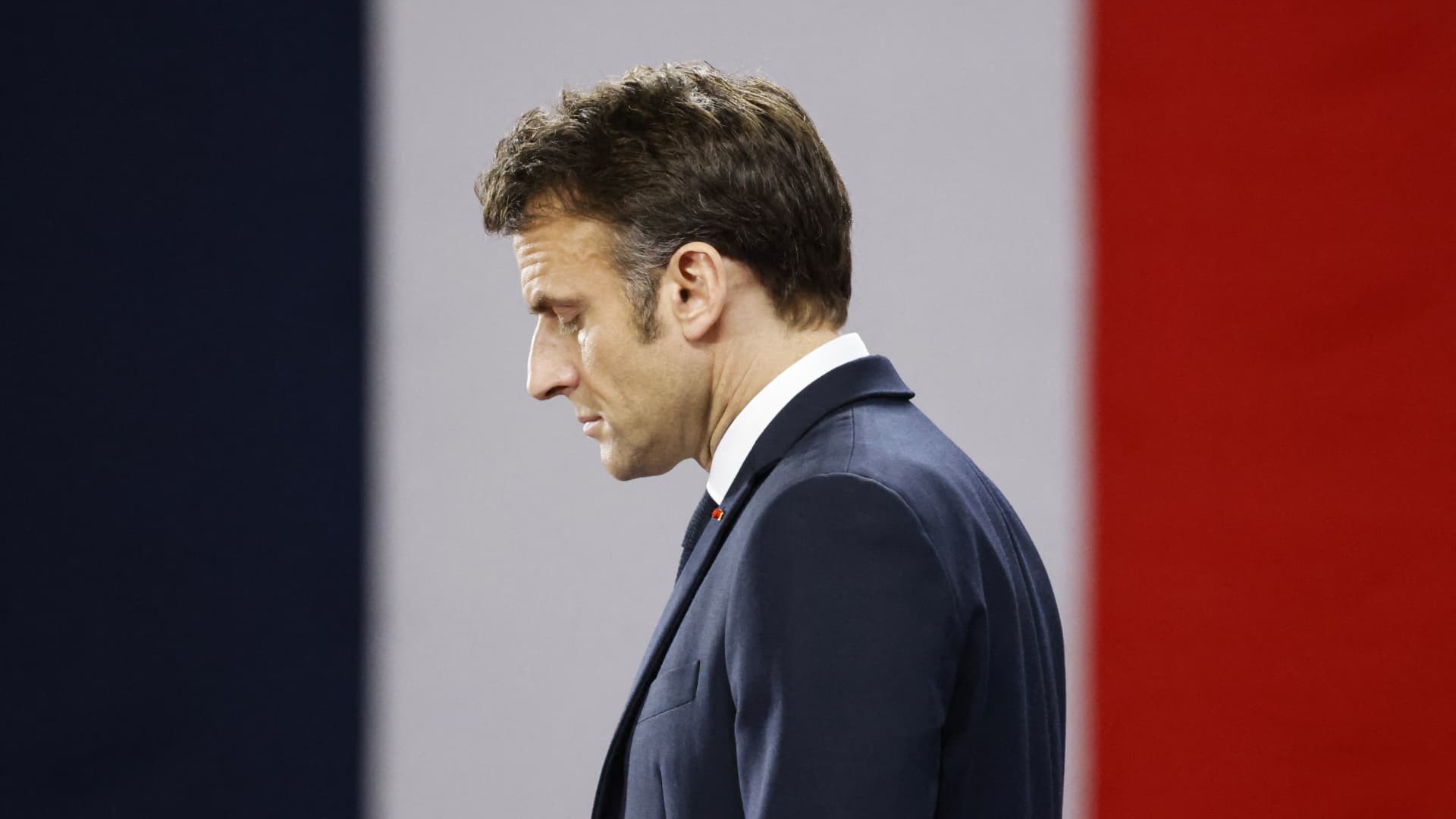President Emmanuel Macron‘s controversial pension overhaul, pushed through by overriding the country’s parliament, could eventually erase what the French leader has been working for over the last six years, political analysts told CNBC.
Macron has placed himself as a centrist politician. When aiming to become president in 2017, he chose to establish his own party (La Republique en Marche!, which has been rebranded Renaissance) and tried to break away from the traditional conservative and socialist stances. He positioned himself as an opposite to extremism and a solution to the rather staid politics of the past.
At elections in 2017 and 2022, he comfortably overcame the far-right challenge of Marine Le Pen — but analysts now predict a more clouded outlook with Macron not eligible to run in 2027.
Macron’s recent decision to use special legislative powers to push through a hike in the retirement age adds to a wider dissatisfaction with the political system, Armin Steinbach, a professor of European law and economics at H.E.C. Business School, told CNBC last week.
A poll published earlier this month by the French business channel BFM TV showed that if there were a vote today between Macron and the National Rally’s Le Pen, the sitting president would lose with 45% of the votes. Macron won the 2022 election with 58.5% of the support.
Macron is not grooming anyone and that’s part of the problem.Shahin Valléesenior research fellow, German Council on Foreign Relations
Macron’s popularity rating has worsened in the wake of the pension reforms. At the end of March, almost 70% of people surveyed disapproved of the president, versus 61% at the start of the year.
“The bottom line is that it is definitely increasing the split in the society,” Steinbach added.
France has seen 11 days of protest against the new pension laws. The proposed legislation pushes the retirement age up from 62 to 64, and for Macron, and his government, it’s a necessity in order to balance the public finances.
Without enough parliamentary support for the reforms, the French government used Article 49.3 of the constitution, which means the law passes through the lower chamber without a vote. The move angered many French lawmakers and citizens and France’s top court on Friday is due to rule on whether the proposals follow the country’s constitution.
When asked if Macron’s actions would boost more extremist parties, Shahin Vallée, a senior research fellow at the German Council on Foreign Relations, said: “Yes, absolutely.”
Vallée, a former economic advisor to Macron when he served as French economy minister, added that the reforms are “polarizing” voters and will have “disastrous medium-term consequences for the French public.”
Le Pen has voiced her opposition to the pension reform. In the 2022 election, she said she was in favor of keeping the retirement age at 62 and lowering it to 60 for workers who started their careers before the age of 20.
No successor
On top of potentially more support for parties from the political extremes, experts have mentioned how Macron’s lack of a clear successor will also impact future elections.
“Macron is not grooming anyone and that’s part of the problem,” Vallée said, adding that “Renaissance [party] is a one man party.”
Macron is serving his second mandate as president and the French constitution prevents him from running again for the job in 2027. Without a strong candidate to lead his party at the next election, the centrist group might struggle to pick up enough votes.
Three different spokespeople for the Renaissance party, including Secretary General Stéphane Séjourné, were not immediately available for comment when contacted by CNBC.
But the fact that there’s not a clear successor from Macron’s own party could also be tactical.
“None of them have an interest in being the official successor,” Steinbach said, mentioning Bruno Le Maire, the current finance minister, and Edouard Philippe, the former prime minister, as potential successors. He argued that a “natural break” from Macron would be more helpful for potential successors when gathering votes, as they could more easily distance themselves from the negative connections of the sitting president.
Vallée also said he wouldn’t be surprised if Macron takes on a job in the European Union after this mandate, “it could be a great holding spot, especially if Le Pen gets elected in 2027.”
In an interview with Politico, François Bayrou, a top ally of Macron, also said that Macron’s participation in French politics will not end after his second mandate as president.
